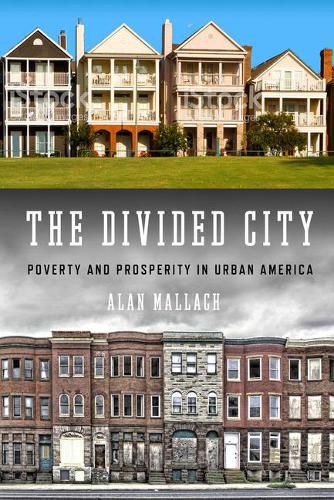Readings Newsletter
Become a Readings Member to make your shopping experience even easier.
Sign in or sign up for free!
You’re not far away from qualifying for FREE standard shipping within Australia
You’ve qualified for FREE standard shipping within Australia
The cart is loading…






Grounded, realistic strategies for cities to foster greater equality and opportunity.
In The Divided City, urban practitioner and scholar Alan Mallach presents a detailed picture of what has happened over the past 15 to 20 years in industrial cities like Pittsburgh and Baltimore, as they have undergone unprecedented, unexpected revival. He spotlights these changes while placing them in their larger economic, social and political context. Most importantly, he explores the pervasive significance of race in American cities, and looks closely at the successes and failures of city governments, nonprofit entities, and citizens as they have tried to address the challenges of change. The Divided City concludes with strategies to foster greater equality and opportunity, firmly grounding them in the cities’ economic and political realities.
$9.00 standard shipping within Australia
FREE standard shipping within Australia for orders over $100.00
Express & International shipping calculated at checkout
Grounded, realistic strategies for cities to foster greater equality and opportunity.
In The Divided City, urban practitioner and scholar Alan Mallach presents a detailed picture of what has happened over the past 15 to 20 years in industrial cities like Pittsburgh and Baltimore, as they have undergone unprecedented, unexpected revival. He spotlights these changes while placing them in their larger economic, social and political context. Most importantly, he explores the pervasive significance of race in American cities, and looks closely at the successes and failures of city governments, nonprofit entities, and citizens as they have tried to address the challenges of change. The Divided City concludes with strategies to foster greater equality and opportunity, firmly grounding them in the cities’ economic and political realities.